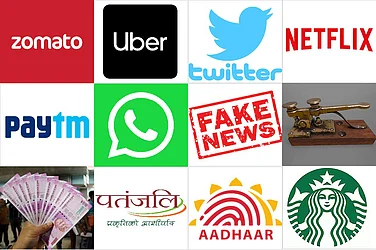There were ascents of redoubtable peaks, and there was the plumbing of some abject troughs, but at the end of the decade ending 2019, the Indian men’s cricket team has eme--rged as one of the most successful outfits in the world. India became world No. 1 in Test rankings and are currently No. 2 in ODI and T20 formats. For most part of this period, the talismanic Mahendra Singh Dhoni was captain, winning the 2011 World Cup (sealing it with that imperturbably swung six), the 2013 Champions Trophy, came tantalisingly close to clinching the 2014 T20 World Cup and reached the semi-fin-als of the 2015 World Cup. ?
From 2009 To 2019: How Indian Men’s Cricket Team Has Evolved As World Beater
Kohli’s star rose, Dhoni’s held its own, the team acquired cutting edge

The wily Dhoni remains the fulcrum of compressed formats, and he is set to play in his fourth World Cup this summer in England. Virat Kohli, who took over the reins from Dhoni in all formats, has been a revelation—the best batsman in the world by most opinions, conducting himself with unbridled passion on the field, his energy communicating itself to the team, he is the spearhead of a lean win-machine. He led India to their first ever Test series win in Australia last year. During the World Cup, he will bank heavily on MSD, who continues to marshal the troops from behind the stumps and, as proven recently, still has the wherewithal to finish off matches.
Indeed, Dhoni was the most effective individual player for India during 2009-2019, while Kohli emerged as the most destructive batsman in the world. After Dhoni surprisingly quit Test cricket in December 2014 and the ODI and T20 captaincy in January 2017, he helped Kohli chalk out strategies.? Kohli is mercurial yin to Dhoni’s unflappable yang; between them Indian cricket is served well. In the last 10 years, Kohli has developed as a free-flowing batsman and aggressive captain who leads by example, blazing a path with his electric fielding/catching.
Besides individual glory, there were other significant dev-elopments in the #10yearchallenge period. The IPL, which was launched in 2008, had many naysayers; they foresaw a doom that would corrupt the game and ruin youngsters’ techniques. Those fears were founded in reason, but the glorious game defies logic. IPL grew by the year, though betting and fixing episodes scarred it for a while. The league, nevertheless, threw up new talent, like pacers Jasprit Bumrah and Mohammed Siraj. The emergence of genuinely fast speedsters, especially their consistent performance overseas, is one of the most heartening of developments. Bumrah, Ishant Sharma, Shami, Umesh Yadav, and Bhuvneshwar were the catalysts of India’s Test expl-oits abroad. Spinners, especially off-spinner R. Ashwin, Chi--naman bowler Kuldeep Yadav and leg-spinner Yuz-vendra Chahal, played a significant role in India’s fortunes.
With the golden generation hanging up their boots, India’s batting is still finding its feet. Solidity, however, is imparted by the immovable Cheteshwar Pujara, consolidating his place with amazing bloody-mindedness. Besides, the rise of big-hitting-wicket-keeper Rishabh Pant and exciting openers Prithvi Shaw and Shubman Gill promises a rosy future.
Indian cricket’s achievements were enabled by increasing fitness levels, thanks to a proactive support staff. It shows the emphasis being laid on physical fitness, as administrators continue to add to the already heavy workload on players.
Meanwhile, Kohli, a bonafide superstar of world cricket, continues to garner the attention off the field. He recently swept the annual ICC Awards. He had earlier received the Arjuna Award (2013), the Padma Shri (2017) and the Rajiv Gandhi Khel Ratna in 2018. The highest civilian award of India, the Bharat Ratna, was bestowed on Sachin Tendulkar in 2013, prompting devotees of hockey wizard Dhyan Chand to question its justification. They could have been provided a pithy answer: Cricket matters.

























